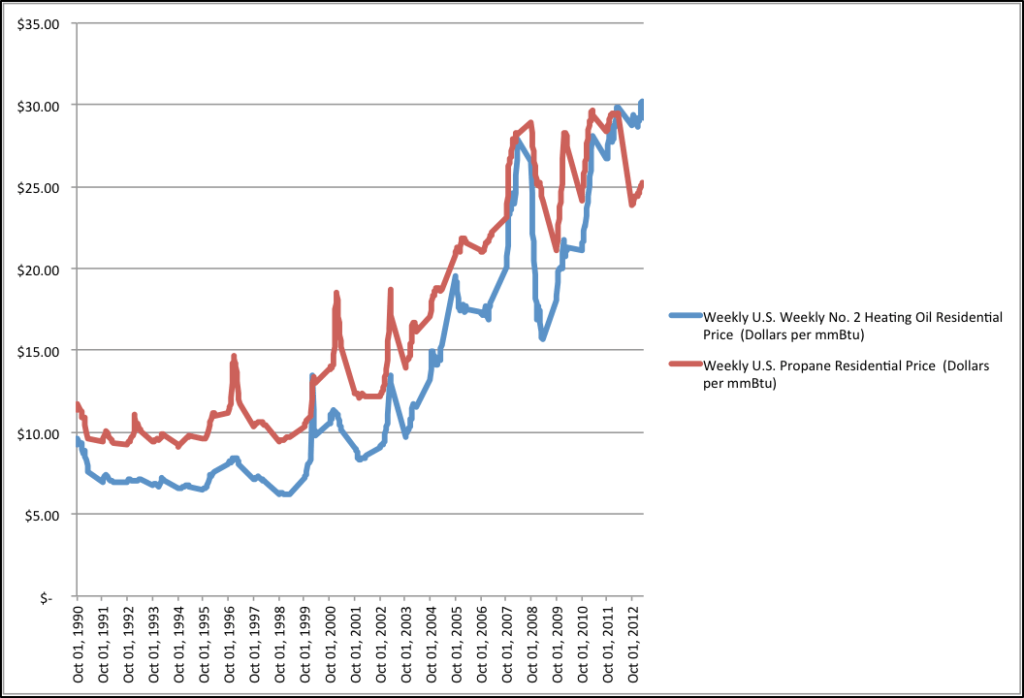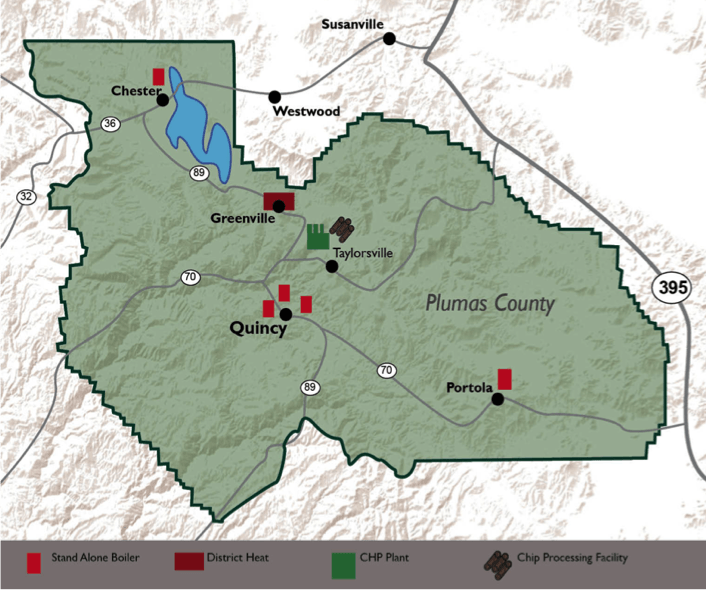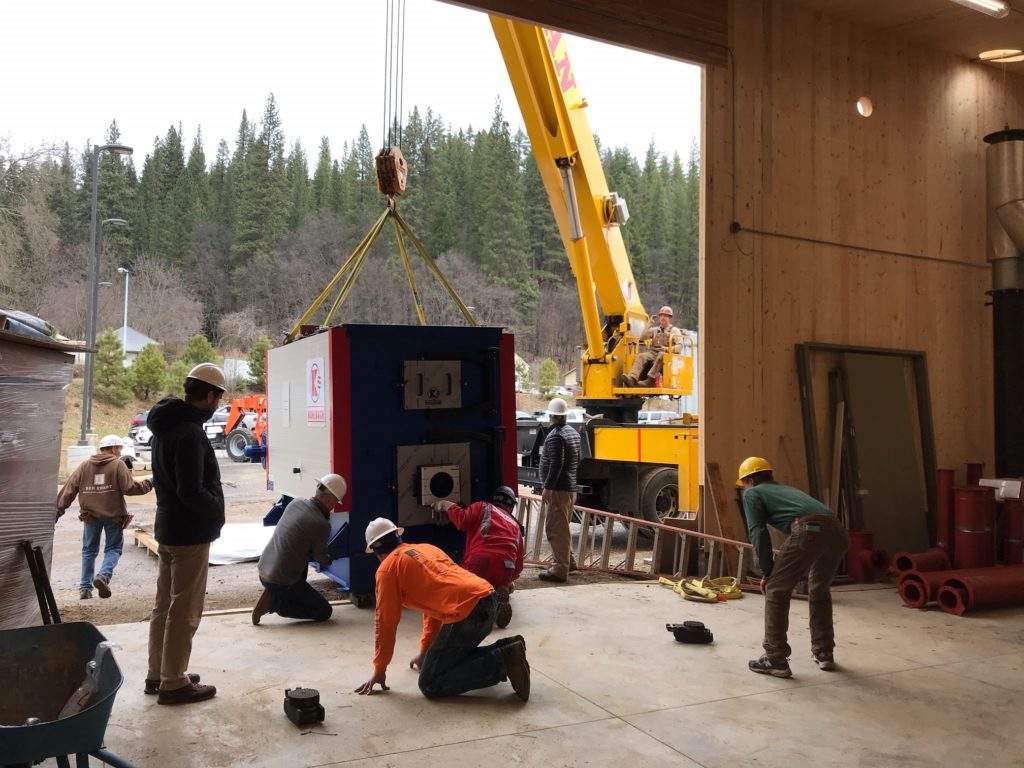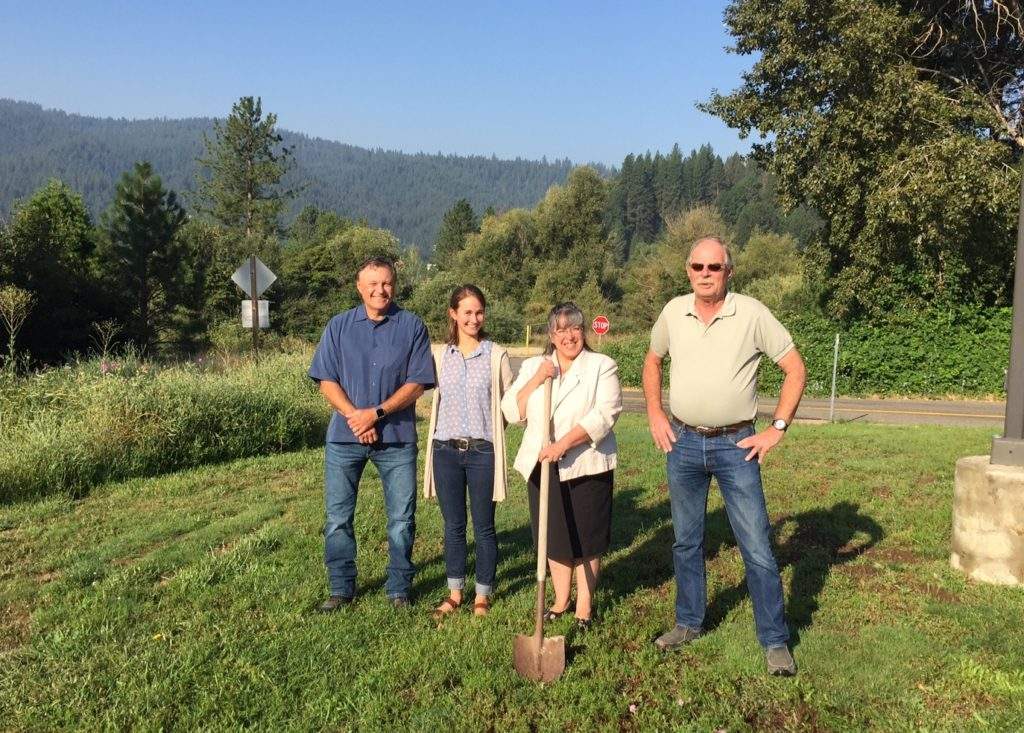
Last week, we reviewed the importance of advancing wood utilization projects in rural forested communities. A significant component of Sierra Institute’s wood utilization work has been to develop a county-wide network of biomass heating systems by encouraging entities to convert to biomass heat.
Unlike urban areas or California’s Central Valley, communities in more remote and forested areas like Plumas County do not have access to affordable natural gas. Businesses and other non-residential buildings must therefore rely on fossil fuels for heat. Propane, fuel oil, and the like are subject to extremely volatile prices and can pose significant financial burdens on rural entities. Not to mention that many local heating facilities are seriously outdated and running well beyond their life expectancy.

With support from a California Energy Commission planning grant, Sierra Institute and local stakeholder partners developed a county-wide plan for renewable energy in 2013, focused on use of forest biomass. In very preliminary assessments, existing heating systems and heating costs for critical institutions around the county (hospitals, schools, county buildings, etc) were compared with potential fuel costs if they were to convert to biomass heat.
Our findings: using a local and tremendously abundant fuel source of wood chips to heat public buildings would save entities tens of thousands of dollars in fuel costs each year. Plus, a network of biomass heating systems could support emergence of a local wood products business focused on providing a “clean” boiler wood chip (even sized, small, dry chips) to fuel all facilities.
The concept of wood heat is not new to rural America. In Vermont, 32 schools operate wood chip heating systems thanks to the Fuels for Schools program, launched as an initiative to promote use of renewable, local natural resources to provide reliable heat for schools. In the early 2000s, Fuels for Schools expanded to the Intermountain West regions, and Montana is now home to over 14 biomass heating systems at schools, hospitals, and government buildings. Communities in eastern Oregon have also caught on the wood heat trend (with support from our development partners at Wisewood Energy), with systems at schools and county buildings in Burns, John Day, and Prairie City.
And now it’s California’s turn! We have a vision for more wood heat in Plumas County and beyond, and are working to make that happen.
 With [more] funding from the California Energy Commission, and also from Plumas County Facility Services, Sierra Nevada Conservancy, the US Forest Service, and Sierra Institute, we are nearing completion of a small-scale biomass heat and power facility in Quincy. This system will provide affordable and sustainable heat to the Plumas County Health and Human Services Center, and also generate some power to offset electrical costs of running the heat pumps and more. The completed system will serve as a model to not only to the rest of Plumas County but also to the rest of California of woody biomass heating technology that can benefit local forest lands and communities.
With [more] funding from the California Energy Commission, and also from Plumas County Facility Services, Sierra Nevada Conservancy, the US Forest Service, and Sierra Institute, we are nearing completion of a small-scale biomass heat and power facility in Quincy. This system will provide affordable and sustainable heat to the Plumas County Health and Human Services Center, and also generate some power to offset electrical costs of running the heat pumps and more. The completed system will serve as a model to not only to the rest of Plumas County but also to the rest of California of woody biomass heating technology that can benefit local forest lands and communities.
While wood heating systems will not get us to the needed scale of biomass utilization to address California’s tree mortality problem, it’s an excellent opportunity to advance a sustainable community-scale effort to promote wood utilization and improve socioeconomic well-being.
It’s not just about creating outlets for dead trees, but also about rebuilding local economies on sustainable forest management and renewable energy.
What’s next? Sierra Institute has funded a number of biomass feasibility studies for schools, hospitals, and county buildings in Plumas County will continue to encourage and support future conversions. The Plumas Unified School District currently has a U.S. Forest Service grant for engineering of a biomass system at Quincy High School, a direct result of our work.
After many years of planning and theoretical discussions of what biomass heating in Plumas County could be like, we’re thrilled to finally be seeing some progress. Our future is wood!



